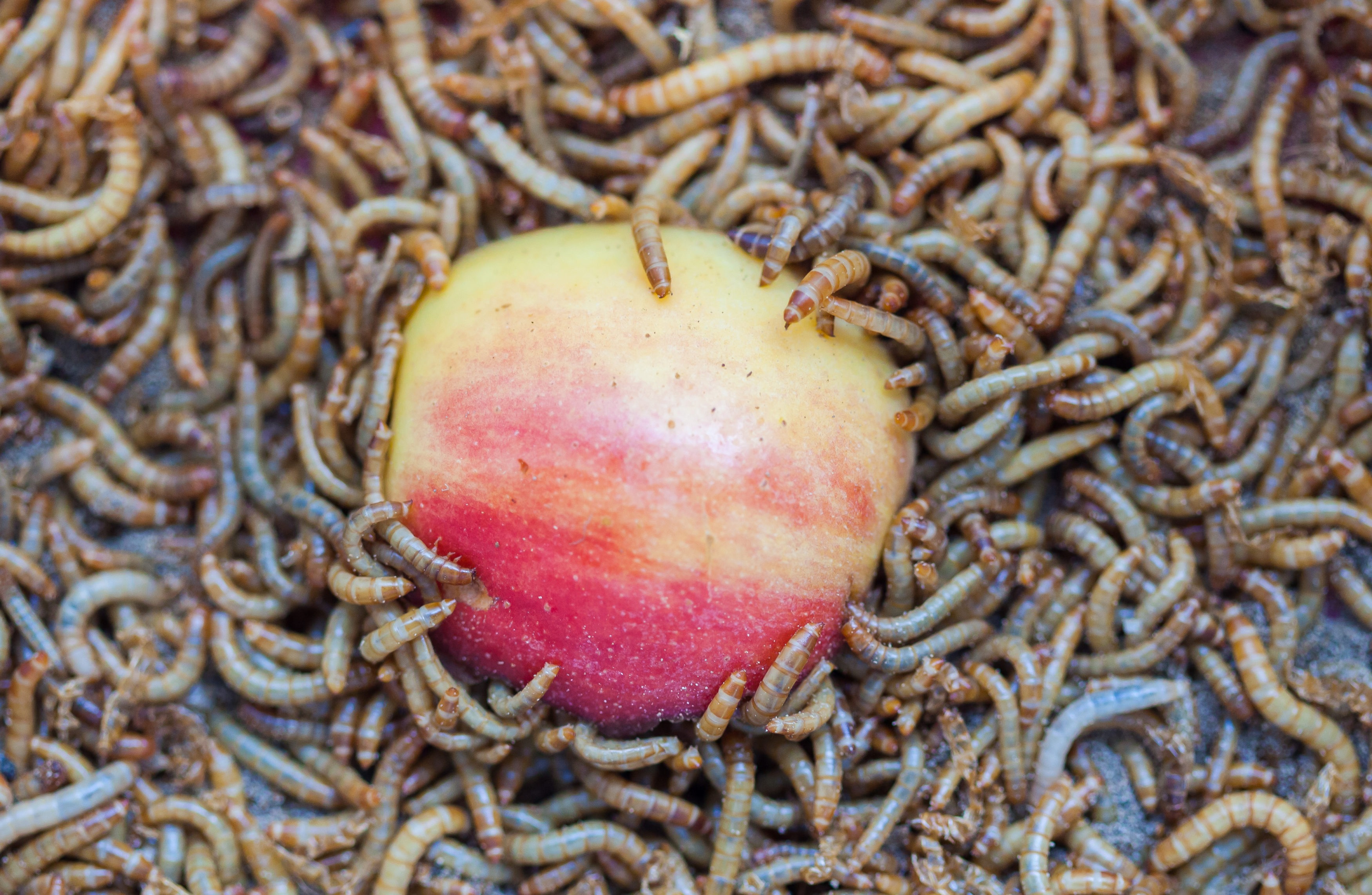*First Published Jan 31, 2018. Updated April 5, 2018 to reflect close of round and new partnerships.*
Seattle-based insect farming startup Beta Hatch has closed an oversubscribed $2.1 million seed round. Beta Hatch cultivates mealworms for animal feed using patent-pending equipment, a trade-secret process, and unique genetic stock, developed by entomologist and founder Virginia Emery.
Investors in the round included Cavallo Ventures, the venture arm of agriculture retailer Wilbur-Ellis, Element8, a Seattle-based angel investor group focused on cleantech, Keiretsu Capital, NQV8, a Kansas-based equity group focused on innovations in pet food, and Montana’s Frontier Angels.
Wilbur-Ellis had been looking to make an investment in insect farming to meet the demands of their customers for alternatives to fish meal, Mike Wilbur, corporate vice president of business development at Wilbur-Ellis told AgFunderNews.
“We have been selling fishmeal for almost 100 years — that’s how the company was founded. Our customers are asking for alternative sources and they’re looking for more sustainable options.”
Wilbur said one reason he was drawn to Beta Hatch was its singular focus on feed replacements, unlike many other insect startups that split their attention between human and animal consumption. The company is simply following the larger market, says Emery.
“We’re not looking to produce insects for human food. We don’t have to convince birds and fish that insects are delicious. We love the edible insect space, but ultimately there are many millions to be made in insects as food. There are billions to be made in insects as feed,” she said.
Wilbur-Ellis does not currently sell any insect-containing feed products because Wilbur says the cost remains too high: “That’s one of the challenges that Virginia is going to have,” he said.
With the close of the round, Beta Hatch also entered into a partnership with Texas-based EVO Conversion Systems, a leading research group on black soldier flies. Emery will work with EVO to develop production standards for American producers of BSF, to add to her mealworm expertise.
“We are very excited to apply our insect ranching technology with other species, and to expand our feedstock options by working with black soldier fly,” said Emery.
Emery said that mealworms grow with less water and in less space, than black soldier flies (BSF), the insect farm that investors have favored in the few sizeable venture deals to date for insect farms, the largest of which was a $50 million round for Dutch BSF operation Protix in 2017, which has since expanded into mealworms as well via acquisition. But, on the other hand, mealworms require the byproducts the consume to be dried. Emery is working to perfect both methods in her custom-designed rearing environment.
“Our ranch technology has been designed to be species agnostic to accommodate all kinds of insects and maximize their potential for recycling organics in the food system. We are excited to learn more about black soldier flies through this partnership with EVO,” she said.
Beta Hatch is currently operating out of a 7,000 sq. ft. pilot farm in Seattle supplying small accounts locally. In the near-term, the company will build out a 5,000 sq. ft. warehouse farm to demonstrate the company’s full processing capacity and scalable rearing tech.
In her pilot program, Emery said that salmon fed exclusively with mealworms have grown at the same rate as fish fed a formulated feed mix.
The price of fish meal has been climbing for the last five years and though Emery says that aquaculture farmers she talks to believe it will eventually fall, she emphasizes that the ocean is no longer a renewable resource.
Despite Beta Hatch’s early stage, Emery is confident that her mealworms will be able to reach price parity with fishmeal within one year of commercialization. What’s more, she said that aquaculture operations will pay a premium for consistency and quality. The price of fishmeal ranges from $1400-2400 per ton with an unpredictable supply chain of which consumers are becoming more and more aware.
Emery is targetting a price of $2,000 per ton with a ten-year guarantee, selling to feed manufacturers and not directly to farms.
In addition to year-round consistency, mealworms can replace or eliminate the need for feed additives that influence qualities of salmon that matter to consumers like color, potentially decreasing costs to farmers. Beta-Hatch will also sell mealworm frass, or insect manure, which can be used as organic fertilizer for specialty crops. The mealworms themselves eat agricultural byproducts.
In addition to being Wilbur-Ellis’s first feed investment, Beta-Hatch is the earliest stage investment yet for Cavallo Ventures. The startup has raised $500,000 in grants from the National Science Foundation and other government agencies.
“The market is asking for this solution so we went out and looked at any number of companies and found what we wanted at this stage,” said Wilbur.





